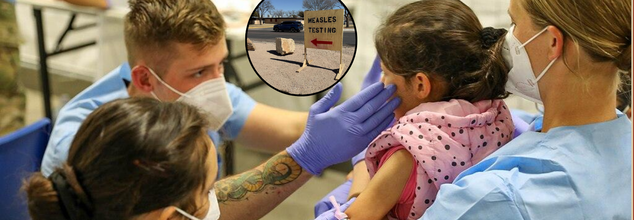
Could COVID-19 Help Fight Cancer? A Groundbreaking Study Finds Out the Link
The COVID-19 pandemic was a traumatic experience for most, claiming countless lives and forcing many to suffer in isolation. The fear and disruption caused by the virus during 2020-2021 extended beyond the pandemic itself, affecting the diagnosis and treatment of other life-threatening diseases like cancer and tuberculosis. However, what if we told you that the very virus that upended our lives might hold the key to fighting cancer?
Cancer is one of the leading causes of death worldwide. During the pandemic, some doctors noticed something intriguing: cancer patients who contracted COVID-19 experienced tumor shrinkage or reduced growth. Initially, it was unclear if this was a coincidence or if there was a deeper connection.
A recent study led by researchers at the Northwestern Medicine Canning Thoracic Institute, published in The Journal of Clinical Investigation last month, sheds light on this phenomenon. This groundbreaking research could pave the way for new treatments to combat cancer, especially metastasis—the process by which cancer spreads to different parts of the body.
Dr. Ankit Bharat, chief of thoracic surgery at Northwestern University, and his team found that the SARS-CoV-2 virus influences a type of immune cell in the body called monocytes. Normally, cancer cells manipulate monocytes to shield themselves from the immune system's attack. However, the researchers discovered that the presence of the COVID-19 virus alters this behavior.
The viral RNA appears to transform monocytes into a rare type of immune cell, scientifically termed inducible nonclassical monocytes. These transformed cells can be enhanced with specific drugs to infiltrate tumors and metastatic regions. Once inside, they break down the cancer’s protective shield, enabling the body’s immune system to identify and attack the cancer cells more effectively.
This is a significant breakthrough, particularly for tackling cancer metastasis, which remains a major challenge in cancer treatment. Inside the tumors, these transformed monocytes trigger the production of natural killer cells—specialized immune cells that directly destroy cancer. The study has already shown promising results in mouse models for cancers such as melanoma, breast, and colon cancer.
The findings offer hope for innovative treatments and underscore the unexpected ways in which the virus could contribute to medical advancements. While the COVID-19 pandemic left a trail of devastation, its complex interactions with the human body might open new doors in the fight against cancer.
The COVID-19 pandemic shook the entire world, changing lives, economies, and healthcare systems. While it brought immense suffering, studies like this remind us of the hidden potential for breakthroughs through adversity. Cancer, one of the most deadly diseases affecting people across all age groups, continues to devastate lives without discrimination. This research not only unveils a fascinating connection between SARS-CoV-2 and cancer but also marks the beginning of a new hope. If utilised effectively, these findings could lead to revolutionary treatments, offering hope in the relentless fight against a disease that knows no boundaries.

Credits: Canva
World Health Day 2025: History, Theme, Importance, And Significance
The World Health Organization (WHO) states that every year on April 7, the World Health Day is observed to draw attention to a specific health topic of concern to people all over the world. The date of 7 April marks the anniversary of the founding of WHO in 1948.
History of World Health Day
This day was first proposed to be celebrated at the First Health Assembly in 1948, and ever since, from 1950, it has been observed. It marks the founding anniversary of the WHO, which a global platform that works on urgent health issues as well as promoting awareness. The WHO also addresses critical health concerns across the world and remains free from political influences. It also uses this day to draw international attention on health priorities.
The WHO notes that when diplomats met to form the United Nations in 1945, one of the things they discussed was setting up a global health organization, this is how WHO's Constitution came into being from April 7, 1948. This is the date that we now celebrate every year as World Health Day.
Theme Of World Health Day
Each year, the WHO announces a specific theme for the World Health Day. This is to spotlight a key area of concern in the health sector. This year, the theme for 2025 is "Healthy Beginnings, Hopeful Futures".
The WHO on its official X handle posted a collaboration with the Ministry of Health and the authorities of Hera to deliver an Integrated Health Program observing this year's theme:
This year's campaign and the theme focus on collaborating with governments and health bodies to invest in impactful initiatives that can reduce preventable deaths. It also aims to improve long-term well-being of mothers and newborn.
The focus points of the theme are:
Helping every woman and baby survive and thrive: The WHO mentions that based on currently published estimates, close to 300,000 women lose their life due to pregnancy or childbirth each year. Whereas 2 billion babies die in their first month of life and 2 million are stillborn. This means roughly 1 preventable death every 7 seconds.
Listening to women and supporting families: WHO mentions that women and families everywhere need high quality care that supports them physically and emotionally, before, during and after birth. Health systems thus must evolve to manage the health issues that impact maternal and newborn health.
"The health of mothers and babies is the foundation of healthy families and communities, helping ensure hopeful futures for us all," notes WHO.
Significance Of World Health Day
For the last five decades, the World Health Day, which celebrates the founding day of WHO has played an important role in highlighting key health issues. It has focused on various health issues including mental health and well-being, maternal and child health, and the growing impact of climate change on global health.
The campaign also facilitates conversations and discourse around health, which can then promote awareness among people. This day therefore serves as a reminder to unite global efforts and direct attention towards building a healthier and safer communities around the world.

Second Child Dies In Texas Measles Surge, Nearly 500 Infected And Counting
The United States is witnessing its most significant measles outbreak in over a decade, with Texas at the epicenter. The recent death of an 8-year-old child in Lubbock marks the second pediatric fatality from the disease in the state this year. The child, who was unvaccinated, died of "measles pulmonary failure" — a severe complication of the viral illness — at University Medical Center Children’s Hospital.
This latest fatality, following the February death of another school-aged unvaccinated child, underscores the growing public health emergency in Texas and beyond. As of early April, the Texas Department of State Health Services has confirmed 481 measles cases — a 14% increase over the previous week — with total U.S. cases exceeding 628 across 21 states and Washington D.C.
Both child victims were reportedly healthy before contracting measles, with no underlying conditions. Yet neither had received the MMR (measles, mumps, rubella) vaccine, which the Centers for Disease Control and Prevention (CDC) confirms is 97% effective in preventing measles after two doses.
According to the CDC, about 1 in 20 children with measles will develop pneumonia — the most common cause of death from measles in young children. Additionally, 1 to 3 of every 1,000 infected children may die from respiratory or neurological complications. Measles also induces "immune amnesia," weakening the immune system for months or even years.
"The disease has returned because a critical percentage of parents have chosen not to vaccinate their children, in large part due to misinformation," said Dr. Paul Offit, Director of the Vaccine Education Center at Children’s Hospital of Philadelphia.
The outbreak that began in Seminole, Texas, in January has spread into New Mexico, Oklahoma, Kansas, and even Mexico. New Mexico has reported 54 cases, Oklahoma 10 (eight confirmed and two probable), and Kansas 24, many likely linked to the Texas outbreak.
Most cases are in individuals under 18 years old, and the majority of them were unvaccinated. Public health officials fear that these figures may be an undercount, as many people with mild or unreported symptoms may not seek medical care or testing.
“This virus is spreading fast, and it’s hitting our youngest, most vulnerable populations the hardest,” said Katherine Wells, Public Health Director in Lubbock.
Hospitals in West Texas have been strained by the surge. University Medical Center Children’s Hospital and Covenant Children's Hospital have collectively treated dozens of children for measles-related complications — from respiratory failure to vitamin A toxicity in children given alternative treatments without medical oversight.
Dr. Lara Johnson, Chief Medical Officer at Covenant, reported treating multiple children for liver issues caused by excess vitamin A. “We understand the desperation parents may feel, but unregulated treatment is dangerous,” she warned.
U.S. Health and Human Services Secretary Robert F. Kennedy Jr. has faced growing scrutiny over what many in the medical community call a slow and inadequate response. Once a vocal anti-vaccine advocate, Kennedy has only recently acknowledged the importance of the MMR vaccine publicly.
Kennedy visited Gaines County, the outbreak’s epicenter, over the weekend to meet with grieving families and issued a statement urging vaccination. However, critics, including FDA’s former vaccine chief Dr. Peter Marks, say his past stance has contributed to vaccine hesitancy and misinformation.
“This is the epitome of an absolute needless death,” Marks said. “These kids should get vaccinated — that’s how you prevent people from dying of measles.”
The CDC has deployed teams to West Texas and continues to urge parents to immunize their children. Dr. Manisha Patel, the agency’s incident manager for the outbreak, emphasized that during outbreaks, even babies as young as six months should receive their first dose of the MMR vaccine.
“This isn’t the time to wait. Parents need to act now,” Patel said at a press conference. She urged families not to delay seeking medical attention for any child showing measles symptoms such as high fever, rash, or persistent cough.
Still, the CDC’s own messaging has been mixed. A spokesperson recently referred to vaccination as a "personal decision," diverging from long-standing public health guidance — a shift that has puzzled and concerned many healthcare professionals.
With more than double the measles cases reported this year compared to all of 2024, the U.S. is now on a dangerous trajectory. The outbreak is expected to continue for several months, possibly into 2026, unless drastic steps are taken to increase immunization rates.
Senator Bill Cassidy of Louisiana, a Republican and physician, has called for Kennedy to testify before the Senate Health Committee. “Everyone should be vaccinated! There is no treatment for measles. No benefit to getting measles,” Cassidy wrote on X.
Experts agree that restoring public trust in vaccines, bolstering access to immunization clinics, and combating misinformation are essential next steps. If not, more children — like the ones in Texas — will pay the ultimate price.

Credits: Canva
Forget Love, Remember This: Married People May Be More At Risk For Dementia, Says Study
For decades, marriage has been widely regarded as a "protective" factor against many health conditions, ranging from heart disease to depression. The standard narrative has been that the married live longer, are healthier, and enjoy improved mental well-being than the unmarried. But what if that presumption, especially when it comes to cognitive health, doesn't quite hold up?
A new study in Alzheimer's & Dementia flips on its head this traditional wisdom. Married people are at much greater risk of dementia than divorced, widowed, or never-married adults, the 2025 study by Florida State University and the University of Montpellier researchers found.
The longitudinal study followed 24,107 older adults for 18 years. The participants ranged in age from 50 to 104 (mean age: 72) and were recruited through the National Alzheimer's Coordinating Center, which has more than 42 Alzheimer's Disease Research Centers throughout the U.S. None of the participants had been diagnosed with dementia at the time of enrollment, although some showed symptoms of mild cognitive impairment.
The results were dramatic:
- Marrieds had a 50% greater risk of getting dementia than their unmarried counterparts.
- Never-married subjects had the lowest risk for dementia, although the difference was not statistically significant between them and divorced or widowed subjects.
- Even among the subjects who at the beginning presented with mild cognitive impairment, those who were not married were less likely to reach full dementia.
- Participants who lost their spouses in the course of the study demonstrated a reduced risk of developing dementia when compared with those who remained married.
The findings contradict the long-standing assertion that marriage invariably improves health and indicate that marital status might play a more complicated role in cognitive aging than heretofore assumed.
Why Might Unmarried People Fare Better Cognitively?
Although the researchers could not identify a single definitive explanation for these findings, they presented several plausible hypotheses.
One of the strongest findings was that never-married and unmarried people generally have more robust and varied social networks. They are more likely to have active friendships, be involved in their communities, and develop significant relationships outside of a marital bond.
Married people are less socially integrated and have less frequent, lower-quality interactions in their networks than are unmarried people," the authors of the study wrote.
Moreover, being single tends to demand a higher level of self-sufficiency, which prompts individuals to remain mentally active by taking care of their lives on their own. The psychological complexity and variety of experiences in the lives of unmarried individuals may possibly serve as a buffer against cognitive decline.
Rethinking the Health Benefits of Marriage
This research is part of a growing body of evidence challenging the general assumption that marriage is good for health all the time. Previous studies have consistently produced correlations between marriage and health, but these rarely control for confounding variables such as access to health care, resources, or prior health status.
Significantly, correlation is not causation. Just because married individuals often look healthier sometimes doesn't imply that marriage causes it. Instead, it might be that healthier individuals are likely to marry or that marriage gives economic and logistical benefits that support general health.
Actually, a 16-year Swiss study with more than 11,000 adults discovered that marriage did not benefit participants' health—and health actually reduced after marriage in some instances.
As populations in societies worldwide contend with aging populations and increasing rates of dementia, the results from this new study provide essential public health planning. Marriage as a protective factor assumptions may no longer be valid, particularly when estimating dementia risk among older adults.
The clinicians and policymakers can also be faced with the possibility of considering broader approaches that will enhance cognitive function in all the elderly, including those who are married and not married. Such initiatives can reinforce community ties, foster lifelong education, promote mental and physical stimulation, and provide support systems extending beyond the nuclear family structure.
As larger numbers of older persons become divorced, widowed, or never married, it will become crucial to know how these varied life circumstances influence brain health as the foundation of building equal-opportunity, effective health interventions.
Although this paper presents highly compelling findings, further investigation is required to disentangle the intricate dynamics among relationship quality, social connectedness, stress, lifestyle habits, and their roles in cognitive aging.
Is marital conflict stress a cause of cognitive decline? Does marriage caregiving wear down neurological well-being? Or is it the psychological autonomy fostered by the unmarried that is the secret protector against dementia? These are questions left open—and in need of exploration.
In a world in which marriage is so often idealized as the gold standard of a happy and fulfilling life, these findings serve as a bracing—and empowering—reminder- there is no single formula for aging well.
© 2024 Bennett, Coleman & Company Limited

